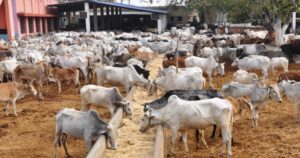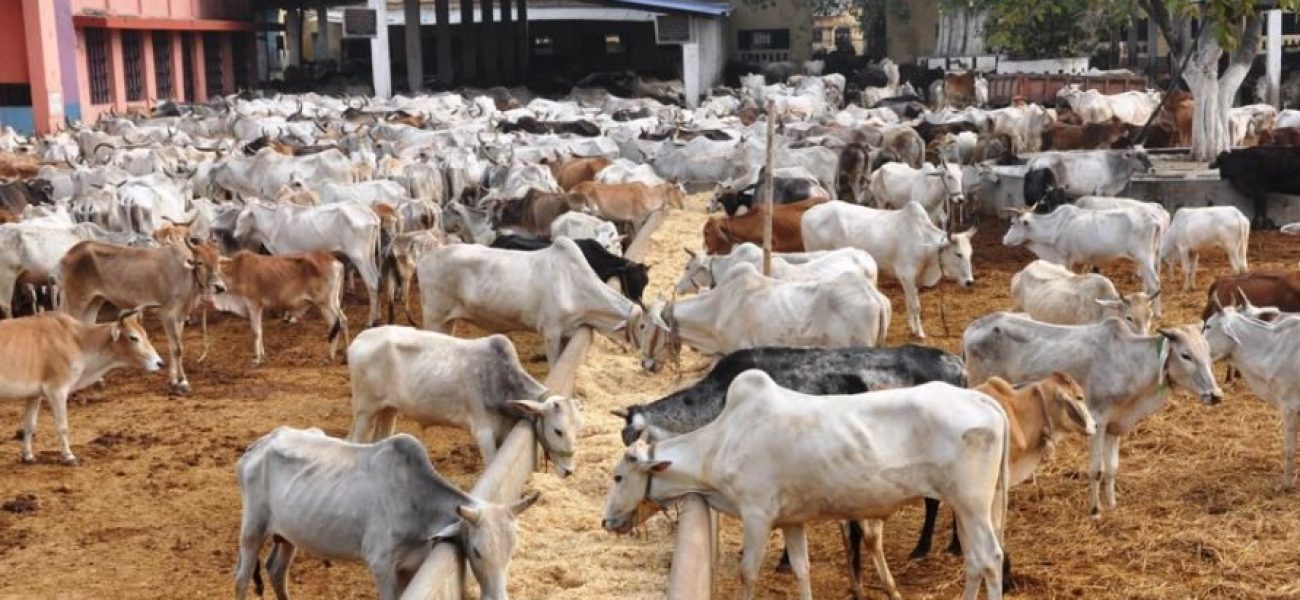 The recent attacks and massive killings of indigenes and inhabitants of several communities in Benue State on 30th December 2017 to 2nd January, 2018 sent shockwaves across the country. It emphasises more than ever, the importance of finding a lasting solution to the farmers & herdsmen clashes that has become a perennial issue in the country. Recently, the Minister of Agriculture and Rural Development, Chief Audu Ogbeh announced that the Federal Government would establish cattle colonies across the country to militate against future re-occurrences. However, while 16 states are reported to have offered land to the Federal Government to utilise in carrying out this project, not all quarters share this sentiment.
The recent attacks and massive killings of indigenes and inhabitants of several communities in Benue State on 30th December 2017 to 2nd January, 2018 sent shockwaves across the country. It emphasises more than ever, the importance of finding a lasting solution to the farmers & herdsmen clashes that has become a perennial issue in the country. Recently, the Minister of Agriculture and Rural Development, Chief Audu Ogbeh announced that the Federal Government would establish cattle colonies across the country to militate against future re-occurrences. However, while 16 states are reported to have offered land to the Federal Government to utilise in carrying out this project, not all quarters share this sentiment.
For instance, in Abia State, the Governor, Dr. Okezie Ikpeazu deemed the idea impractical stating that it has limited land for agricultural activities. Others have also fought against the decision as intermeddling and giving free land to “rich “ cattle owners who are running private businesses. They also question why the Federal Government could not extend its benevolence in giving land to farmers. However, arguments for having a cattle colony are generally centred on creating employment opportunities, large scale production of food for domestic consumption, generating internally generated revenue in states and helping to give Fulani nomads a sense of belonging while bringing their culture in conformity with 21st century realities.
However, it appears that the proposed cattle colony concept must be balanced with wider underlying issues that are intensifying the precarious situation in the country, if the programme is to be successful. For instance, the Senate Ad-hoc Committee Report on Review of Security Infrastructure in Nigeria[1] observed that the mayhem in Benue was a manifestation of a larger national security issues in its findings on the Benue State crisis. This complements an International Crisis Group Report[2] that warned that the farmers and herdsmen clashes could be potentially as dangerous as the Boko Haram insurgency in the North East. Therefore, the cattle colony programme must “skim beyond the surface” by interlinking social, economic, cultural and security issues in its attempt to provide a lasting solution to the crisis.
The proposal also notably leaves out some significant details. For instance, did the 16 States provide government owned or privately owned land and if the latter; were the legal requirements for government acquisition followed? Section 28(1) and (2) of the Land Use Act 1978 provide that the government can only compulsorily acquire lad where it is used for a public purpose and there is an overriding interest. Therefore in that case, there are pertinent questions as to whether there was adequate compensation paid in line with section 44(1) of the 1999 Constitution (as amended). In addition to this are reservations as to what keeping cattle colony, which is relatively unknown actually entails and whether it will be an adequate response to the present crisis based on its definition. The Minister had distinguished the practice from the more popular concept of ranching, which dedicates an area of land for the grazing of livestock such as cattle and sheep for meat or wool.
Overall, it appears that full acceptance of the cattle colony programme will be best achieved by deliberation, consensus and volunteered participation. It is noteworthy that the 3 Bills[3] seeking to legalise Grazing Routes and a Grazing Commission in the National Assembly were last considered in 2016 after a public outcry perceived its intentions as an arbitrary attempt to obtain land. The subject has also caused tensions with Ekiti, Taraba and Benue State already having an anti-open grazing legislation in existence. Therefore, at best the government can only win full persuasion of its policy in reluctant States by proving the benefits in form of security and harmony between farmers and herdsmen in States that embrace the concept in the long-term.
[1] Report of the Ad-hoc Committee on the Review of the Current Security Infrastructure in Nigeria http://placng.org/wp/wp-content/uploads/2018/01/Report-of-the-Adhoc-Committee-on-Review-of-Security-Infrastructure-in-Nigeria.pdf
[2] https://www.vanguardngr.com/2018/01/nigerian-herdsmen-crisis-whats-stake/
[3] National Grazing Reserve (Establishment) Bill, 2015 (HB 448), National Grazing Route and Reserve Commission (Establishment) Bill, 2016 (HB 539), and National Grazing Reserves Agency (Est,etc) Bill, 2016

